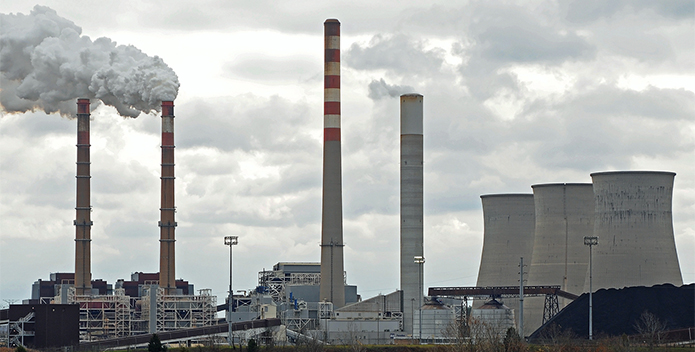The recent hot and sunny weather throughout the watershed has blessed many of us with picturesque days to swim, fish, or work in our gardens. But this weather isn't a blessing to some.
On hot and sunny days, air pollution from 19 upwind power plants forms ground-level ozone that causes a bevy of health problems such as shortness of breath, wheezing, and headaches. What's worse, long-term exposure to this ozone particularly impacts children, likely acting as a leading cause of asthma and a link to permanent lung damage. Moreover, this air pollution also contributes to excess nitrogen pollution in the Chesapeake Bay and its tributaries which leads to algal blooms and dead zones where no aquatic life can survive.
These plants burning dirty fossil fuels are also contributing to our warming planet, increasing the frequency and severity of lengthy heat spells like we are currently experiencing.
The Maryland Department of the Environment (MDE) petitioned the EPA to require these 19 power plants to turn on their pollution controls during every day of the ozone season (generally May through September) to prevent air pollution that puts millions at risk of serious health issues. Unfortunately, this past June, the EPA announced that it planned to deny Maryland's Petition.
These 19 power plants in states like Kentucky and Indiana have pollution controls in place that can greatly reduce this onslaught of air pollution. But they don't always fully operate them during the ozone season, which MDE found likely increased their bottom line.
The picturesque days of late should be a blessing to all. We cannot sit idly by while the most vulnerable among us are exposed to dirty air. Join us and urge the EPA to grant the Clean Air Act Petition filed by Maryland. And don't wait—they need to hear from you before the July 23 public comment deadline.
This Week in the Watershed: Blueprint News, Conowingo Controversy, and Charm City EIBs
- Baltimore City is embracing Environmental Impact Bonds, a new, innovative tool that can make a dent in the onslaught of polluted runoff. (Chesapeake Bay Magazine)
- A new intern in CBF's Hampton Roads office is making quite a splash. (Virginian Pilot—VA)
- Exelon, the owners of the Conowingo Dam, and the state of Maryland are at odds over if Exelon is responsible for paying a hefty sum to clean up pollution entering the Bay. (Bay Journal)
- The community of Hopewell, VA opened a revitalized area in Riverside Park, as a project funded in part by CBF removed invasive species and planted trees and shrubs to alleviate polluted runoff. (Daily Progress—VA)
- This deep dive into the health of the Bay details the successes of the Chesapeake Clean Water Blueprint and where there's room for improvement. (Bay Journal)
What's Happening Around the Watershed?
July 14, 18, 21, 25, 28
- Upper Marlboro, MD: What's better than the taste of fresh vegetables, just picked from the farm? Ones you've picked yourself! Join the staff of CBF's Clagett Farm, a 285-acre working, sustainable farm, in harvesting vegetables for their CSA and workshare program. Put in a few hours work and bring home your own share of fresh produce. Register here!
July 20, 27, August 10, 17, 24, 31
- Shady Side, MD: Break a sweat and help Save the Bay—join CBF in cleaning the "homes" of the next generation of Chesapeake Bay oysters! Help restore the Chesapeake's native oyster population by cleaning oyster shells. We'll be shaking off the dirt and debris on shells so baby oysters can successfully grow on them. This "shell shaking" event is a bit of a workout but a fun, hands-on experience. With lifting involved, it is not recommended for individuals with bad backs or other health concerns. A tour of our restoration center will follow the shell shaking. Register here!
August 23
- Virginia Beach, VA: Join us for an evening of cocktails, live music, and oysters galore with a beautiful view at CBF's Brock Environmental Center. Register here!




